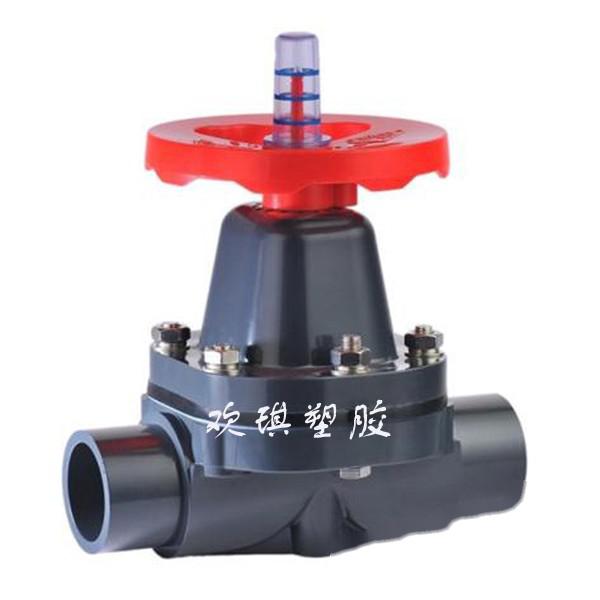The prominent feature is that the diaphragm separates the lower valve body cavity from the upper valve cover cavity, so that the parts above the diaphragm such as the valve stem and valve disc are not corroded by the medium, eliminating the need for packing seal structure, and will not cause external leakage of the medium. The diaphragm made of rubber or plastic soft sealing material has good sealing performance. Due to the diaphragm being a vulnerable part, it should be replaced regularly according to the characteristics of the medium. Due to the limitations of diaphragm materials, diaphragm valves are suitable for occasions with low pressure and relatively low temperature. PVDF diaphragm valves can be divided into six types according to the structural form: roof type, straight-through type, shut-off type, straight-through type, gate type, and right-angle type; the connection form is usually flange connection; according to the driving method, it can be divided into manual, electric, and pneumatic, with pneumatic drive further divided into normally open, normally closed, and reciprocating three types. It is generally not suitable for use in pipelines with temperatures higher than 60 degrees and conveying organic solvents and strong oxidizing media, nor is it suitable for use in pipelines with relatively high pressures.
G41F-10FPVDF diaphragm valve detailed description
Scope of use and structural features: Suitable for the transportation and shut-off of corrosive media, as well as flow regulation. The operating temperature ranges from -14°C to 100°C and -40°C to 140°C depending on the material. The flow components are assembled from PVDF injection molded parts, with excellent corrosion resistance, convenient operation, light weight, and can replace stainless steel valves. The sealing diaphragm is made of F46 or PFA, with a folding resistance of ≥1200 times, and corrosion resistance equivalent to F4. It adopts a screw lifting structure, with large opening and closing torque and good stability.
Installation and use of PVDF diaphragm valves: When connecting the flanges at both ends to the pipeline, tighten the bolts evenly to prevent flange deformation and leakage. Turn the handle clockwise to close, and counterclockwise to open. The opening degree can be judged based on the position of the indicator.
Names of plastic raw materials and applicable temperatures:
UPVC Hard polyvinyl chloride Temperature -10°C ~ 70°C
CPVC Chlorinated polyvinyl chloride Temperature -40°C ~ 95°C
RPP Reinforced polypropylene Temperature -20°C ~ 90°C
PVDF Polyvinylidene fluoride Temperature 40°C ~ 140°C
Shanghai Huanqi Plastic Pipeline Co., Ltd.
Name: Li Yaoqing
Company phone: 021-57562878
Company fax: 021-57562676
Mobile: 15900400720
Email: twhq29@163.com
Company website: http://www.hqpvc.com
http://www.hqpvc.com/aboutus.asp?id=23
http://www.hqpvc.com/news.asp?bigclassname=Company News
http://www.hqpvc.com/product.asp
http://www.hqpvc.com/news.asp?bigclassname=Product Knowledge
http://www.hqpvc.com/news.asp?bigclassname=Company Cases
http://www.hqpvc.com/aboutus.asp?id=24













